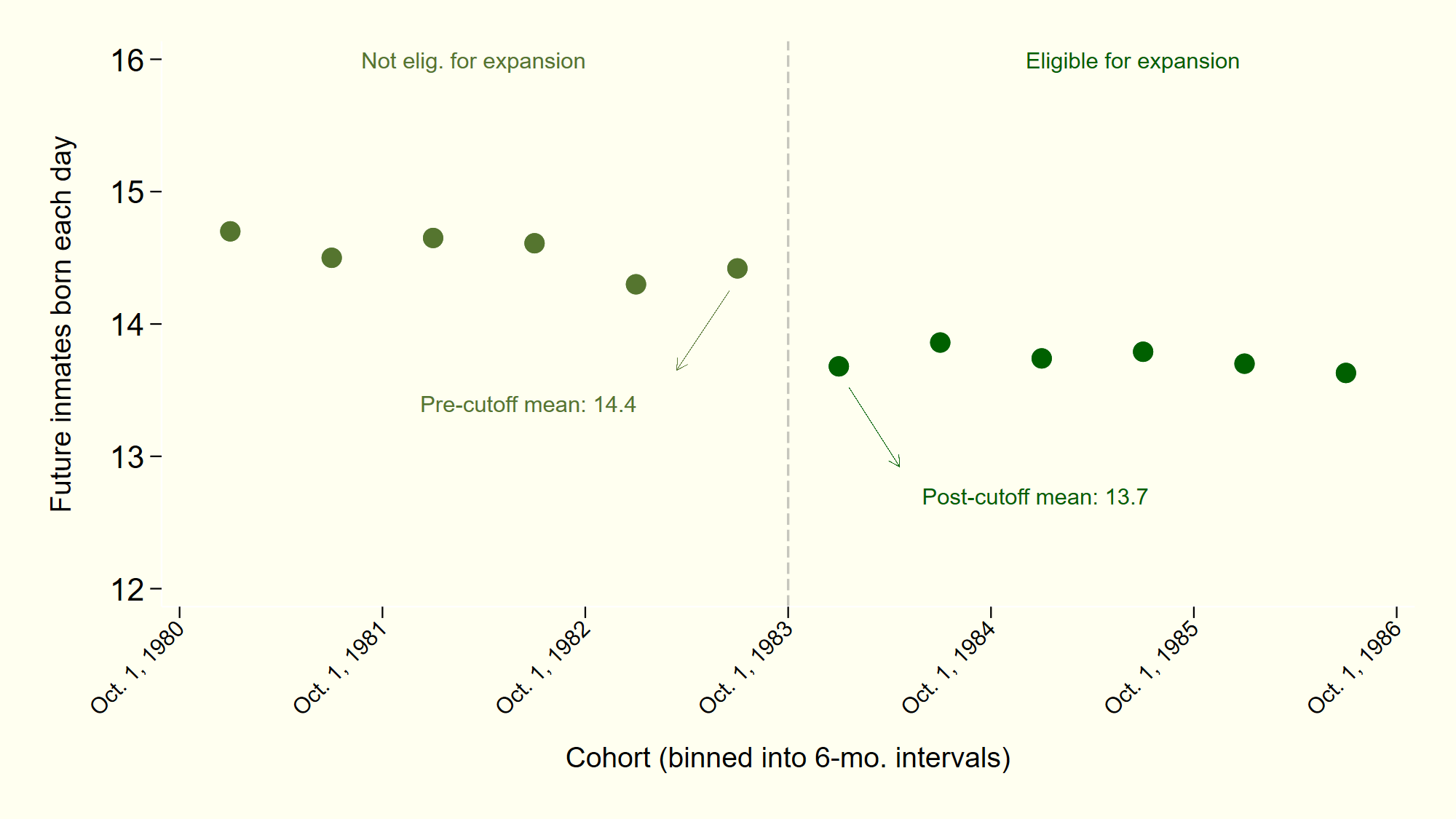Above: We show that adult incarceration falls sharply beginning with the cohort born on October 1, 1983, which coincides with the first cohort eligible for a large expansion of youth Medicaid eligibility.
American Economic Journal: Applied Economics, Vol. 16, No.1, January 2024
Cited by the 2024 Economic Report of the President
Cited by the 2025 Economic Report of the President
Awarded IPUMS Best Graduate Student Research Using Health Surveys
Link to working paper
Abstract
This paper identifies an important spillover associated with public health insurance: reduced incarceration. In 1990, Congress passed legislation that increased Medicaid eligibility for individuals born after September 30, 1983. We show that Black children born just after the cutoff are 5 percent less likely to be incarcerated by age 28, driven primarily by a decrease in incarcerations connected to financially motivated offenses. Children of other races, who experienced almost no gain in Medicaid coverage as a result of the policy, demonstrate no such decline. We find that reduced incarceration in adulthood substantially offsets the initial costs of expanding eligibility.

